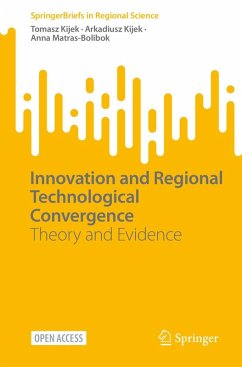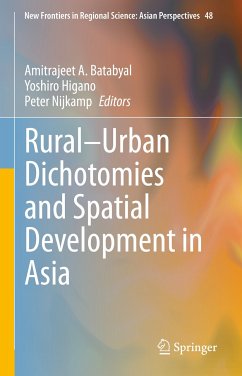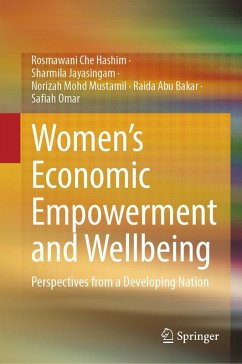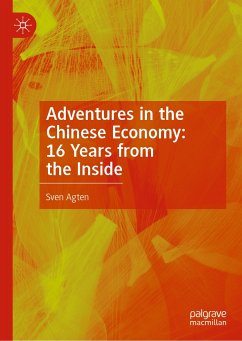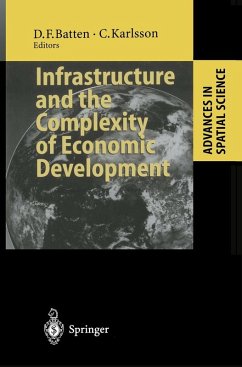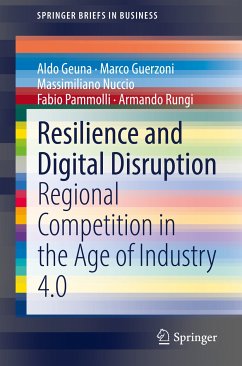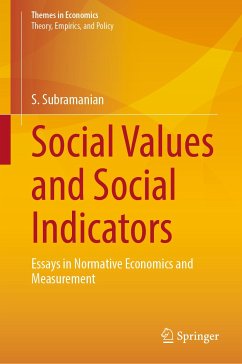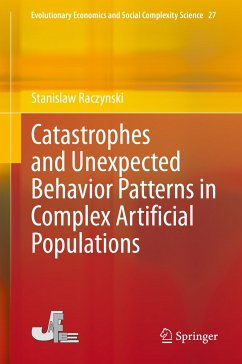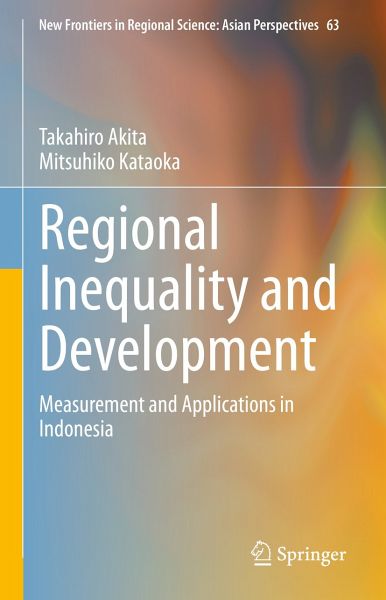
Regional Inequality and Development (eBook, PDF)
Measurement and Applications in Indonesia
Versandkostenfrei!
Sofort per Download lieferbar
72,95 €
inkl. MwSt.
Weitere Ausgaben:

PAYBACK Punkte
36 °P sammeln!
This book addresses three main issues in regional income inequality and development: meaning of regional inequality, measurement of regional inequality and the relationship between national economic development and regional income inequality. It provides analytical methods useful in exploring the determinants of regional inequality in income and productivity. Some software commands in Stata (statistical software package) available for the measurement and analysis of income inequality are also introduced. Some researchers have argued that spatial concentration of population in and around major ...
This book addresses three main issues in regional income inequality and development: meaning of regional inequality, measurement of regional inequality and the relationship between national economic development and regional income inequality. It provides analytical methods useful in exploring the determinants of regional inequality in income and productivity. Some software commands in Stata (statistical software package) available for the measurement and analysis of income inequality are also introduced.
Some researchers have argued that spatial concentration of population in and around major cities and the concurrent increase in regional inequality do not hinder national economic development, and may stimulate it. Nevertheless, many national governments seek to promote balanced regional economic development and reduce regional income inequality, because unbalanced development and higher levels of regional inequality may cause political or ethnic conflicts between different regions of the country. As the applications of the analytical methods introduced in the first part of the book, the second part presents four independent empirical studies on regional inequality and development in Indonesia. They offer very interesting case studies for the formulation of policies and programs to reduce regional inequalities, because as the world's largest archipelagic country with more than 13 thousand islands and 300 ethnic groups, Indonesia is spatially diverse in terms of its ecology, natural resource endowments, economy, ethnicity and culture.
This book can be used as a textbook for undergraduate and graduate students who are interested in national economic development and regional income inequality. It is also beneficial for practitioners and policy makers who are in charge of the formulation, implementation and evaluation of development policies and programs.
Dieser Download kann aus rechtlichen Gründen nur mit Rechnungsadresse in A, B, BG, CY, CZ, D, DK, EW, E, FIN, F, GR, HR, H, IRL, I, LT, L, LR, M, NL, PL, P, R, S, SLO, SK ausgeliefert werden.
Alle Preise in Euro und inkl. der gesetzl. MwSt. | Innerhalb Deutschlands liefern wir preisgebundene Bücher versandkostenfrei. Weitere Informationen: bitte hier klicken
Support
Bitte wähle dein Anliegen aus:
Rechnungen
Bestellstatus
Retourenschein
Storno




